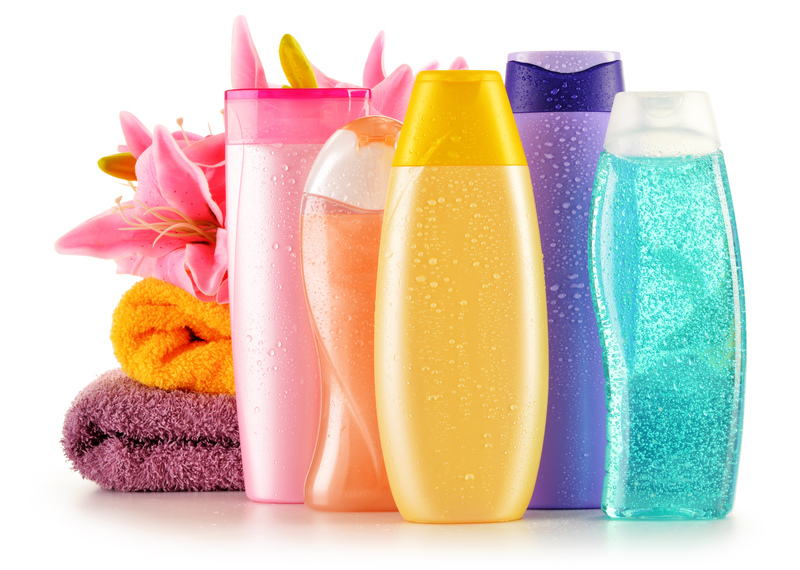Discover How to Neutralize Damp Smells
Posted on 12/06/2025
Discover How to Neutralize Damp Smells: A Comprehensive Guide to Freshen Your Home
Are you plagued by that persistent, musty scent lurking in your home? While damp odors are common in many households, they can have a significant impact on comfort, well-being, and the overall atmosphere of your living space. Discovering how to neutralize damp smells not only improves your indoor air quality but also helps safeguard your health and your home's structural integrity. If you're ready to banish those bothersome odors for good, read on for the ultimate guide to eliminate and neutralize damp odors.

What Causes Damp Smells?
Musty and damp smells typically emanate from excess moisture in your environment. Understanding the root causes is essential to address the problem at its source.
- Mold and Mildew: Fungi thrive in moist environments and release spores that create that characteristic musty odor.
- Poor Ventilation: Insufficient air flow can trap humidity, leading to lingering dampness.
- Water Leaks: Hidden leaks from pipes, roofs, or basements can result in damp carpets, walls, and flooring.
- Condensation: Especially common in bathrooms, kitchens, and basements, condensation can accumulate and foster a moist environment.
Identifying the cause is the vital first step in eliminating damp odors and keeping your home fresh and healthy.
Why It's Important to Neutralize Damp Odors
Damp smells are not merely unpleasant--they're warning signs. Mold and mildew can damage household materials and cause allergic reactions or respiratory issues. Prolonged exposure also damages furniture, clothing, and even the structural elements of your home.
- Health Impact: Mold spores may trigger allergies and worsen symptoms of asthma or other respiratory conditions.
- Property Damage: Excess moisture can rot wood, peel paint, and corrode metals.
- Lower Home Value: Persistent odors and visible moisture issues can decrease property value if left unchecked.
Step-by-Step Guide: How to Neutralize Damp Smells
Step 1: Identify the Source
To effectively neutralize damp smells, start with a thorough inspection. Look for water stains, wet patches, peeling wallpaper, or visible mold. Pay close attention to basements, bathrooms, kitchens, and closets. A mold detection kit or a moisture meter can help target hidden problem areas.
Step 2: Remove Moisture
Drying out affected areas is crucial to stop odors at their source.
- Ventilate: Open windows and use fans to restore airflow.
- Use Dehumidifiers: Dehumidifiers draw moisture out of the air. For best results, maintain indoor humidity below 60%.
- Absorb Moisture: Place bowls of uncooked rice, baking soda, or silica gel packets in small, enclosed spaces.
Step 3: Clean Thoroughly
Deep cleaning is essential when addressing the smell of dampness. Treat surfaces where mold or mildew may hide, including behind furniture, under rugs, and inside closets.
Effective Cleaning Methods:- Natural Solutions: Mix equal parts white vinegar and water in a spray bottle. Apply to affected areas, let it sit, then scrub with a stiff brush.
- Baking Soda: Sprinkle on carpets or fabrics, let it sit overnight, and vacuum in the morning to absorb lingering musty scents.
- Commercial Cleaners: Choose products specifically designed for mold and mildew removal.
Step 4: Disinfect and Neutralize Odors
Neutralizing agents break down odor-causing molecules rather than masking them. Here are effective ways to neutralize damp odors:
- Activated Charcoal: Place bowls of activated charcoal in musty rooms to absorb odors and moisture.
- Baking Soda: Renowned for odor absorption, baking soda can be left in affected areas for several days.
- White Vinegar: Set out bowls of vinegar to naturally absorb troublesome scents.
- Essential Oils: Add a few drops of tea tree, lavender, or eucalyptus oil to diffusers or cleaning sprays for a fresh finish.
- Commercial Neutralizers: Look for products with enzymes or oxidizers specifically labeled for damp or musty odors.
Step 5: Prevent Future Moisture Buildup
Once you've succeeded in removing damp smells, the next task is prevention. Here's how you can maintain a fresh, odor-free environment:
- Improve Ventilation: Install extractor fans in bathrooms and kitchens. Leave interior doors open to promote air flow.
- Repair Leaks Promptly: Monitor plumbing and roofing for signs of water infiltration.
- Use Moisture Barriers: Consider vapor barriers for basements and crawlspaces.
- Keep Gutters Clean: Clear debris to direct rainwater away from your foundation.
- Avoid Over-Watering Plants: Potted plants can harbor excess moisture and mold in their soil.
Room-by-Room Solutions to Neutralize Damp Smells
How to Neutralize Damp Odors in Basements
Basements are prone to high humidity and musty odors.
- Install a Basement Dehumidifier: Choose a model suitable for the size of your space to eliminate the smell of damp effectively.
- Seal Concrete Walls and Floors: Use waterproof paint or sealant to prevent moisture seepage.
- Check for Cracks: Address any foundation cracks that let in water.
Removing Damp Smells in Bathrooms
- Use Exhaust Fans: Always run fans during and after showers.
- Clean Tiles and Grout: Mold loves tile grout--scrub regularly with vinegar or a mold-specific cleaner.
- Keep Soft Furnishings Dry: Hang up towels, bath mats, and shower curtains after use.
Eliminating Musty Odors From Closets
- Dry Clothes Before Storage: Never store damp or wet fabrics in closets.
- Use Desiccant Packs: Place silica gel or moisture absorbers on closet shelves.
- Leave Closet Doors Open: Periodically open doors to allow air circulation.
Freshening Up Carpets and Upholstery
- Steam Clean Regularly: This removes moisture, dust mites, and odors from deep within fibers.
- Baking Soda Sprinkle: Sprinkle baking soda, let it sit, and vacuum after a few hours.
- Sun and Air: If possible, air out rugs and cushions outdoors in the sun to help neutralize odors.
Natural Remedies vs. Commercial Products
Should you choose natural remedies or commercial products to neutralize the smell of dampness? Both have advantages:
- Natural Solutions: Vinegar, baking soda, and activated charcoal are cost-effective, eco-friendly, and safe for families and pets.
- Commercial Products: These offer powerful, targeted formulas for severe or persistent problems; look for those labeled for mold and musty odors.
For best results, consider a combination of both approaches depending on the severity and location of the problem.
Extra Tips to Keep Your Home Smelling Fresh
- Regular Cleaning: Establish a schedule for cleaning carpets, upholstery, and curtains.
- Air Purifiers: Invest in a purifier with a HEPA filter to trap mold spores and allergens.
- Houseplants: Some plants, like peace lilies and Boston ferns, can help improve air quality by absorbing toxins and moisture.
- Let in the Light: Sunlight is a natural mold inhibitor--open blinds and windows whenever possible.
Strengthening these easy habits ensures you eliminate damp smells before they can spread.
Frequently Asked Questions About Neutralizing Damp Smells
-
Can air fresheners remove musty smells?
No, air fresheners only mask the odor temporarily. For lasting results, you must remove the underlying source of moisture. -
How long does it take to get rid of damp smells?
This depends on the cause and severity. Minor odors may fade within a day or two after cleaning and drying out the area; more severe infestations, like deep-set mold, may require professional remediation. -
Are damp smells harmful?
Damp, musty odors often signal the presence of mold or mildew, which can trigger allergies and accompany health risks if inhaled over time. It's important to address them promptly.

When to Call a Professional
Sometimes, despite your best efforts, persistent dampness and odors require professional intervention. If you notice extensive black mold, signs of structural damage, or health symptoms linked to indoor air quality, contact a certified mold remediation specialist. Experts have specialized equipment to identify hidden issues and ensure complete damp smell removal.
Conclusion: Neutralize Damp Smells for a Fresher, Healthier Home
Damp, musty odors don't have to define your home. By understanding the causes, deploying effective cleaning and neutralizing strategies, and establishing preventative habits, you can transform any musty space into a fresh, inviting haven. Remember, the key to a permanently fresh home is not only to mask odors but to seek and eliminate their source.
Ready to enjoy a clean, fresh-smelling home? Start by applying the tips above to neutralize damp smells and embrace the difference a little knowledge and effort can make. For more in-depth home care tips, be sure to browse our related articles on indoor air quality, moisture prevention, and household cleaning techniques.



